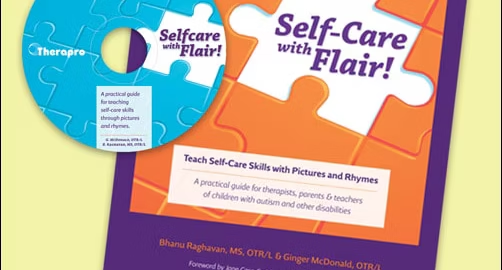Self Care with Flair! is an innovative approach designed to support children with disabilities in developing essential self-care skills. Created by Bhanu Raghavan, MS, OTR/L and Ginger McDonald, OTR/L, this method utilizes engaging pictures and rhymes to teach daily living activities, making learning both effective and enjoyable.
A Creative Approach to Teaching Self-Care
Understanding the challenges children face in mastering self-care tasks, Raghavan and McDonald developed a strategy that combines visual aids with rhythmic patterns. This multisensory technique aids in memory retention and skill acquisition, providing a consistent framework for teaching activities such as dressing, grooming, and hygiene.
Benefits for Therapists and Caregivers
The Self-Care Occupational Therapy Guide offers numerous advantages:
- Consistency: Provides a uniform method for teaching self-care across various settings.
- Engagement: Utilizes fun and interactive materials to maintain the child’s interest.
- Collaboration: Facilitates teamwork among therapists, teachers, and parents.
- Adaptability: Suitable for children with diverse learning needs and abilities.
By incorporating this guide into therapy sessions, professionals can enhance the effectiveness of their interventions, leading to greater independence for the children they support.

